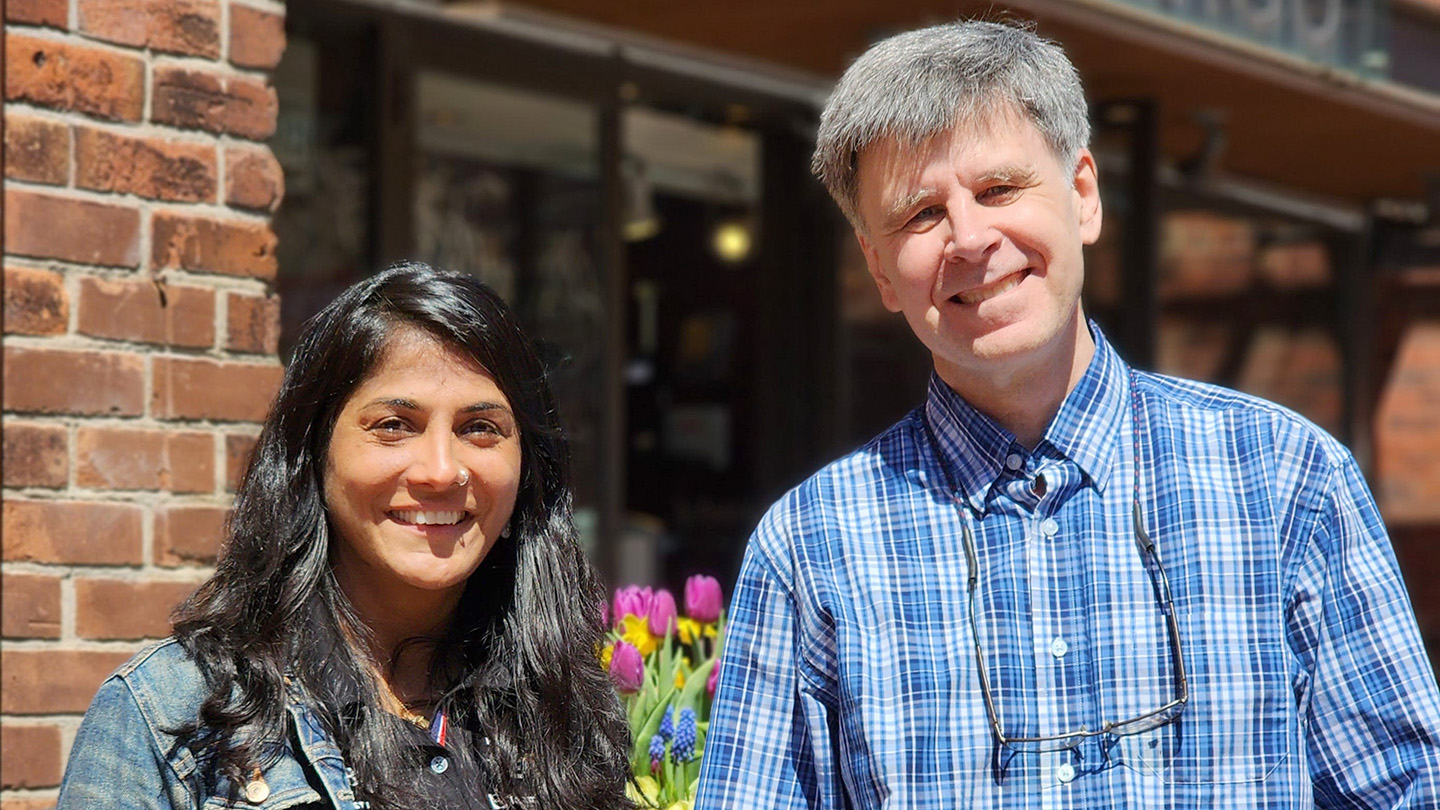OISE faculty helm newly founded, quickly growing Science of Learning blog

With thousands of readers already subscribed, The Science of Learning blog, launched by OISE faculty in 2023, is rapidly gaining a worldwide following.
Launched by Dr. Nidhi Sachdeva and Professor Jim Hewitt in OISE’s department of Curriculum, Teaching and Learning, their new Substack publication examines the latest research into the science of learning and its implications for instructional practice. Since its debut in the summer of 2023, the subscriber count has surpassed 2,000 – and continues to climb.
For Sachdeva, a 2023 OISE graduate turned faculty, the blog was a means to build on her scholarship, but also deliver evidence so educators, parents and students “can make informed decisions” about classroom instruction.
“Integrating educational practices in classrooms can have big impact on learners—especially young learners—and as such, these are high stakes situations where decisions should be made with the utmost care.” says Sachdeva.
“Sadly, what ends up happening more often than not is that educators follow popular teaching trends and fads because they may not have the time to read the research. As a result, they wouldn’t know whether the chosen practice is informed by evidence. They hear something that becomes popular, and they do it with the best of intentions, but it doesn't lead to effective learning.”
Sachdeva was concerned and focused on, for example, about how Canadian students were faring with math proficiency. “[The blog] was an idea that Jim and I had when I finished my PhD. We started writing about practical things – like, ‘what does the research say about the most effective way to teach new knowledge?’ or ‘this is the way to decorate a classroom because kids will get distracted otherwise,’” she says.
The blog is an extension of Sachdeva and Hewitt’s OISE course on the science of learning and it brings valuable, vetted studies to a place where users can more easily digest the material. Sachdeva and Hewitt take some of the more interesting new findings in the literature and bring them to teachers – following questions of educational research and they have evolved over time, and expressing those ideas in simple terms.
“It's been a good experience for us because in order to generate the blog, we have to know the research,” says Hewitt. “It's been challenging, but it's been fun and it's really expanded our own understanding of the literature.”
The blog has evolved into a valuable resource for its Sachdeva and Hewitt – serving as a platform to address questions from students in their course, but as a gateway to access course readings.
“On a number of occasions, we've had discussions in class and a student will pose a question we don't know the answer to,” says Hewitt. “So, we go examine the research, summarize it and bring back the summary to the students.
“And then maybe we'll look at that and say, ‘Hey, you know, this would make a good post in our blog, and we fashion it into a snippet or blog. In other cases, we've used parts of our blog as a course reading for our students.”
To their benefit, the blog has opened up connections to new communities. “Through our blog, we’ve made some great connections with the Math teaching community,” says Hewitt. “We also saw our name spreading among Australians for some reason. “It’s unpredictable. We have readers in over 80 countries. It’s wonderful to see different groups, from around the world, engaging with one of our articles.”
Sachdeva adds that the blog has become a way to engage with some prominent researchers in the field. She cites her interactions with Oakland University professor Barbara Oakley – author and instructor of a popular online course called Learning How To Learn – who saw the blog and amplified it to her students.
“She saw the quality and it meant something to her,” said Sachdeva, of Professor Oakley. “She felt comfortable sharing that with her community and her community responded with so much love.
“It feels incredible. It feels great [to share and engage with the blog]. We continue to learn with it and it's nice to be able to share with people whose voice matters so much more than ours at this point.”